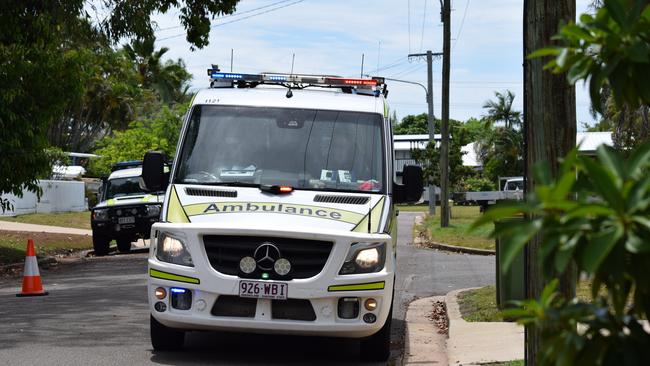Ambos rushing to mental health emergencies every 10 minutes
The number of serious callouts for mental health emergencies are now so frequent that Queensland paramedics are struggling to keep up. SPECIAL REPORT
Emergency Services
Don't miss out on the headlines from Emergency Services. Followed categories will be added to My News.
Paramedics are called out to mental health emergencies at a rate of one every 10 minutes, with internal Queensland Ambulance Service documents revealing a staggering increase over five years.
The QAS has also confirmed it is anticipating and has planned for increased need over the holiday period as families get together – some for the first time since the onset of the Covid-19 pandemic.
Data contained within QAS weekly briefing documents, obtained by the opposition through right to information, shows the number of code 1 and code 2 callouts for “psychiatric, abnormal behaviour, suicide attempt” cases had increased about 60 per cent over the past five years.
Between July and the end of September, paramedics were assigned to about 156 urgent mental health cases a day, or about one every 10 minutes.
Paramedics were tasked to 55,907 urgent mental health call-outs in the 2021-22 financial year, which was an increase of 63.5 per cent over five years – equating to an increase of more than 21,000 calls over the time period.
QAS mental health response program director Sandra Garner said the service was either the first port of call in a mental health crisis if people did not know where to go, or the last if all other avenues had been exhausted.

She said QAS had noted the increased need for help more than three years ago and had mental health crisis responders on hand in call centres to provide support – meaning the data does not include the people cared for without the need to dispatch a paramedic.
Ms Garner said the co-responder model, of sending a mental health expert out to jobs with paramedics, meant people in crisis could be helped without the need to take them to the emergency room.
She said people threatening to commit suicide made up about half of mental health cases paramedics were dis-patched to.
Royal Australian and New Zealand College of Psychiatrists Queensland branch chairman Brett Emmerson said the onset of the increase was likely tied to Covid-19, the flow-on impact of lockdowns and also a blowout on timelines to see a mental health professional.
“It begins as a small fire and if you put it out early, this is the best mental health care,” Professor Emmerson said
“And the longer it’s delayed, the more likelihood that you’ll suffer more (and) it’ll be more severe when you get treatment.”
Ms Garner said the QAS had anticipated an increase in need for mental health help over the holiday period, with Prof Emmerson pointing to financial pressures and social stressors for causing distress around this time of year.



